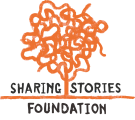Culture
For Indigenous communities cultural value systems existed in a traditional setting with great specificity in a multifaceted and complex system of Law and kinship obligations. Independent systems of governance and Law as laid down by the great ancestral Creation Spirits have provided, and continue to provide for many communities, a powerful and important political, social and spiritual system and code for living.Much of this Law is held and transmitted in and through Song Cycles, stories and ceremony. This Law, unlike Western Law, does not change. As Roy Wunyumbi Ashley Senior Wagliak Songman suggests.
We can’t change around the Law, the Law never change. It’s there for ever, our culture, carrying on the same road, how the Law went before. Same foot track as those old people that went before, our shadow. European law changing every year, every year another government.
As the Creation Ancestors travelled across the land bringing all into being they left behind Songs which span the entire Australian continent. Songs which are, suggests Ethnomusicologist Aaron Corn, “the great classical music of this land” songs, which are “in effect … echoes of eternity”. Dance, performance and song connect people to the land, the animals, to everything created by the ancestors. It is this connection to the land which helps people, says Djungadjunga Yunpuingu ‘find the real meaning of where we come from and why we are here.’
Much culture has been lost as a result of colonisation and many communities involved in this work feel strongly about the issue of cultural maintenance, of working to ensure that language and culture are held for future generations and that Indigenous cultural knowledge is respected alongside Western knowledge and education.
You have to bring your culture with you when you walking, keep both-ways, white fella way and black fella way. Black fella way should come into the school. Plenty time they are in the same boat rocking.
Beverly Pascoe, Umpila Clan. Lockhart River, Qld
I know for a fact that out in western New South Wales and particularly where I come from Wilcannia we’re in a desperate race against time to get as much culture as we can back. Most of our Elders who passed culture on to us have gone and there aren’t many people left who can show us younger generation or teach us about our culture. So now is a very critical time, we should be recording our stories our language, for the benefit of our children’s future because once our Elders are gone that history has gone forever and we’ll never be able to retrieve it.
What’s happening now is our culture isn’t being transmitted in the traditional way. I don’t see why we can’t use modern technology to maintain it, put our stories into technology where our kids are able to walk comfortably and learn culture though that medium. We have to try and marry our ancient beliefs with modern technology: we have to show our kids we can be looking to our culture for positive things, to reaffirm their identity.
Murray Butcher, Paakantji cultural leader and linguist, Wilcannia NSW.
Film: The Ngatji and Paddle steamer.
The Ngatji and the Paddle Steamer is a film made by students at Wilcannia Central School in NSW. It tells of the history of the sinking of a paddle steamer on the Darling River from the perspective of the Paakantji people.
Film: Bilwal Medicine
Bilwal Medicine is a film made by students at Nyikina Mangala Community School in Jarlmadangah Community in the Kimberley, WA. Holly, Hosannah and Keira are shown, by senior cultural custodian Annie Milgin, how to gather a tree sap called bilwal and prepare it as medicine.
Film: Thunderman
Thunderman is a film made by Cyril Dhambutjawa Bukaltjpi with his mother Mavis Ganambarr and included photos by students at Sheperdson College in Galiwinku, Elcho Island, NT. Translations are by Fred Dhammarandji with SharingStories facilitator Tom Murray. The story tells of the Thunderman, a spirit responsible for the bringing of the rain.
Vignette: William Watson.
In this clip William Watson from Jarlmadangah Community in the Kimberley speaks of both connection to, and the ‘right way’ to behave in, Country.
Vignette : Reenie Pascal
Vignette : Reenie Pascal
Reenie Pascal from Maningrida in Arnhem Land speaks about cultural practices that take place after the first stage of Initiation, a cermony in which boys become young men
